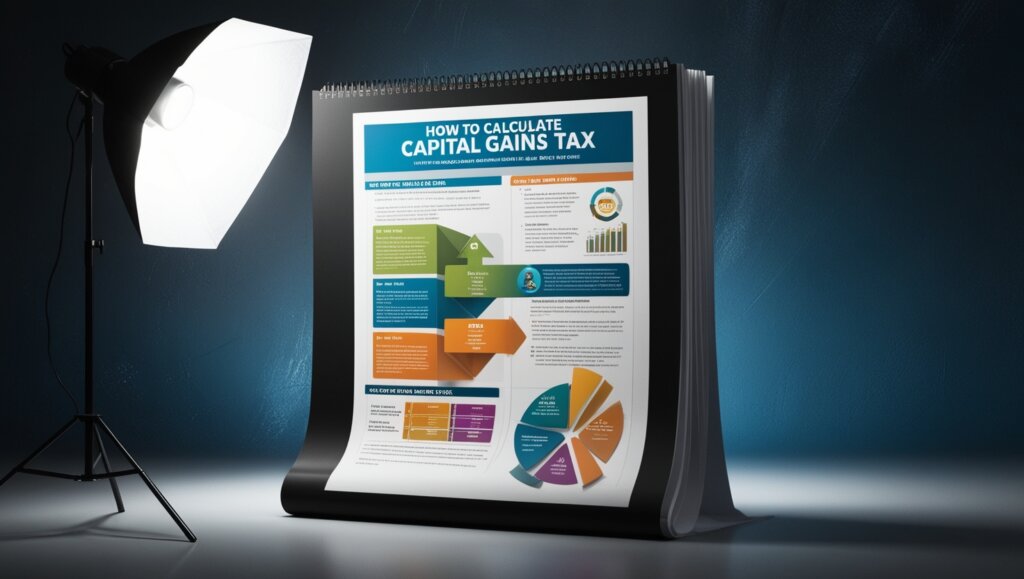Selling real estate in Virginia can be rewarding, but it’s crucial to understand the tax implications, particularly capital gains tax. Whether you’re a homeowner or an investor, knowing how capital gains tax works and the strategies to reduce it can save you thousands. This guide provides an in-depth look at Virginia’s capital gains tax on real estate in 2024.
What is Capital Gains Tax on Real Estate?
Capital gains tax is a tax on the profit earned from selling an asset, including real estate. This tax applies when the selling price exceeds the original purchase price, adjusted for improvements and certain expenses.
Types of Capital Gains
- Short-Term Capital Gains:
- For properties held for less than a year, the profits are taxed at your regular income tax rate.
- Long-Term Capital Gains:
- For properties held longer than a year, the profits are taxed at reduced rates, based on federal guidelines.
Why It Matters in Virginia
Virginia does not impose a separate capital gains tax. Instead, the state taxes real estate profits as part of your regular income at a rate of up to 5.75%, in addition to federal taxes.

Federal and Virginia Capital Gains Tax Rates
Federal Long-Term Capital Gains Tax Rates (2024)
| Income Bracket | Tax Rate |
|---|---|
| Up to $44,625 (single) / $89,250 (married) | 0% |
| $44,626 to $492,300 (single) / $89,251 to $553,850 (married) | 15% |
| Over $492,301 (single) / $553,851 (married) | 20% |
Virginia State Income Tax Rates
| Income Bracket | Tax Rate |
|---|---|
| Up to $3,000 | 2% |
| $3,001 to $5,000 | 3% |
| $5,001 to $17,000 | 5% |
| Over $17,001 | 5.75% |
Together, federal and Virginia state taxes determine your total tax liability.
How to Calculate Capital Gains Tax on Real Estate
Calculating your capital gains tax involves a few simple steps:
- Determine the Adjusted Basis:
- Original purchase price + improvement costs + selling expenses = Adjusted Basis.
- Calculate the Gain:
- Selling price – adjusted basis = Capital Gain.
- Apply Federal and State Rates:
- Use federal long-term or short-term rates and add Virginia’s state income tax.

Example Calculation
- Original Price: $200,000
- Improvements: $50,000
- Selling Price: $400,000
- Adjusted Basis: $200,000 + $50,000 = $250,000
- Capital Gain: $400,000 – $250,000 = $150,000
If the property qualifies for long-term capital gains tax, the total liability might look like:
- Federal (15%): $150,000 x 0.15 = $22,500
- Virginia State (5.75%): $150,000 x 0.0575 = $8,625
- Total Tax Liability: $31,125
Exemptions and Deductions for Virginia Real Estate Sellers
Several exemptions and deductions can reduce your capital gains tax liability:
1. Primary Residence Exclusion
Under the Section 121 Exclusion, homeowners can exclude:
- Up to $250,000 of gains (single filers).
- Up to $500,000 of gains (married filers).
Requirements:
- You must have owned and lived in the home for at least two of the last five years.
2. Deductible Selling Costs
- Real Estate Agent Fees: Typically 5–6% of the selling price.
- Home Staging Costs: Boosts sale value and reduces tax liability.
- Closing Costs: Includes title insurance and escrow fees.
3. Renovation Expenses
- Major upgrades, such as adding a deck, replacing a roof, or renovating a kitchen, can increase your adjusted basis.
Strategies to Minimize Capital Gains Tax
Selling real estate doesn’t have to mean losing a significant portion of your profits to taxes. Consider these strategies:
1. Hold the Property for Over a Year
- Owning the property for more than a year qualifies your gain for lower long-term rates.
2. Use a 1031 Exchange
- Reinvest proceeds from the sale into a similar property to defer taxes.
3. Offset Gains with Losses
- Sell underperforming assets to offset your real estate gains.
4. Invest in Opportunity Zones
- Reinvest profits into designated Opportunity Zones to defer or eliminate capital gains tax.
Virginia-Specific Considerations
Inherited Properties
- Gains on inherited properties are calculated using the “stepped-up basis” rule, meaning the taxable gain is based on the market value at the time of inheritance.
Rental Properties
- Rental properties do not qualify for the primary residence exclusion. However, depreciation deductions can reduce taxable gains.
Frequently Asked Questions
1. Do I Owe Tax on Inherited Property Sales?
No, inherited properties benefit from the “stepped-up basis,” meaning the tax is calculated on the property’s market value at inheritance.
2. Can I Avoid Tax by Reinvesting in Another Property?
Yes, but only if it’s an investment property and you use a 1031 Exchange.
3. Are There Penalties for Misreporting Capital Gains?
Yes, misreporting can result in fines, penalties, or audits. Always consult a tax professional.
Expert Tips for Navigating Virginia Capital Gains Tax
- Plan Ahead: Identify potential exemptions and strategies early.
- Consult a Professional: Work with a tax advisor familiar with Virginia real estate laws.
- Document Expenses: Keep receipts for improvements and selling costs to maximize deductions.
Conclusion
Understanding Virginia capital gains tax on real estate is essential for anyone planning to sell property in 2024. By leveraging exemptions, understanding the rates, and implementing smart strategies, you can minimize your tax burden and maximize your profits.
Ready to sell your property with ease? Visit galaxyhomebuyers.com today for a no-obligation cash offer!


